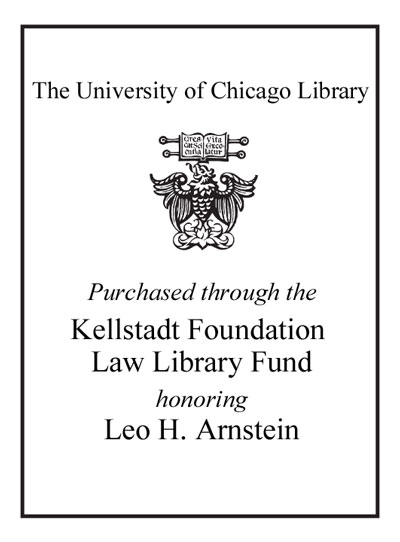Perspectives on contract law /
Saved in:
| Edition: | 3rd ed. |
|---|---|
| Imprint: | New York : Aspen Publishers, c2005. |
| Description: | xxiv, 480 p. ; 23 cm. |
| Language: | English |
| Subject: | |
| Format: | Print Book |
| URL for this record: | http://pi.lib.uchicago.edu/1001/cat/bib/5701327 |
Table of Contents:
- Preface
- Acknowledgments
- I. Enforcing Private Agreements
- 1. How Should Damages for Breach of Contract Be Measured?
- The Reliance Interest in Contract Damages
- The Phantom Reliance Interest in Contract Damages
- Beyond Fuller and Perdue?
- 2. Are Some Breaches of Contract Efficient?
- Fundamental Principles of Contract Damages
- The Efficient Breach Fallacy
- 3. When Should Courts Order Specific Performance?
- A.. Efficiency Concerns
- Specific Performance
- The Case for Specific Performance
- B.. Moral Concerns
- Contract Remedies and Inalienable Rights
- Liberty and Contractual Empowerment
- II. Mutual Assent
- 4. Does a Promise Differ from an Offer?
- On the Nature of Offer, Acceptance, and Promise
- 5. Is There a Duty to Negotiate a Contract in Good Faith?
- Enforcing the Contract to Bargain
- 6. When Should Parol Evidence of Contracting Parties' Intentions Be Considered by a Court?
- "Meaning" in the Law of Contracts
- 7. How Should Courts Use Business Norms to Construe Written Terms?
- The Theory of Legally Unenforceable Agreements
- 8. How Has Modern Technology Affected Mutual Assent?
- Autistic Contracts
- III. Enforceability
- 9. Which Commitments Should Be Enforced?
- The Basis of Contract
- 10. Does the Doctrine of Consideration Have a Function?
- Consideration and Form
- The Ideological Subtext of "Consideration and Form"
- 11. Should the "Intention to Create Legal Relations" Be a Criterion of Enforceability?
- A Consent Theory of Contract
- The Regulatory Role of Contract Law
- 12. Is the Doctrine of Promissory Estoppel About Protecting Reliance?
- The Promissory Basis of Section 90
- The Last Promissory Estoppel Article
- The Four Evolutionary Stages of Promissory Estoppel
- IV. Performance and Breach
- 13. What Constitutes Good Faith Performance?
- Breach of Contract and the Common Law Duty to Perform in Good Faith
- The General Duty of Good Faith--Its Recognition and Conceptualization
- 14. When Is a Breach Material?
- A New Look at Material Breach in the Law of Contracts
- V. Defenses to Contractual Obligation
- 15. When Should a Court Refuse to Enforce a Contract?
- A.. Duress, Undue Influence, and Unconscionability
- Unconscionability: A Critical Reappraisal
- The Bargain Principle and Its Limits
- B.. Contracts of Adhesion
- Contracts of Adhesion: An Essay in Reconstruction
- C.. Unilateral Mistake and the Duty to Disclose
- Mistake, Disclosure, Information, and the Law of Contracts
- The Duty to Disclose Information and the Liberal Conception of Fraud
- 16. Should Courts Adjust Contract Terms to Handle Changed Circumstances?
- Contracts as Insurance
- Court Adjustment of Long-Term Contracts
- Relation-Preserving Vs. End-Game Norms
- The Case for Formalism in Relational Contract
- 17. What Is the Relational Theory of Contract?
- Relational Contract Theory in Context
- Why There is no Law of Relational Contracts

